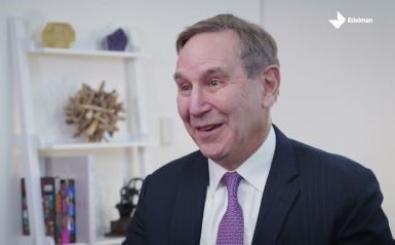After months of speculation surrounding the European Commission’s new digital strategy, Thierry Breton (EU Commissioner for Internal Market) and Margrethe Vestager (VP for a Europe fit for a Digital Age) officially revealed three new tech policies on 19 February, outlining the EU’s approach to shaping a digital future for Europe. A future of transformational change in society and in the digital economy, on the back of emerging technologies like artificial intelligence and data.
The Commission’s approach radiates fresh confidence and technology optimism, whilst acknowledging the urgency to act. Act to level the playing field for European industry against unfettered consolidation of data power. Act to gain EU citizens’ trust by establishing a European model for digital transformation that reflects democratic values like inclusiveness, human-centricity and that contributes to a sustainable, climate-neutral and resource-efficient economy.
Digital and data-driven businesses operating in Europe will face significant changes in the rules of the game. The burden of compliance related to tech governance and data management is set to increase. New rules will impact the ability to leverage access to platforms and access to data as key assets of digital business models (e.g. data sharing rules for co-generated data in an IoT context). The prospect of growth through M&A will meet with new theories of harm related to the consolidation of data power. Conditions will be imposed for the deployment of certain AI applications in Europe. Operators of high-risk applications of AI, will need to be able to demonstrate due diligence in respect data and record-keeping, information outlining the purpose and the limits of the AI system to users, technical robustness and accuracy of the AI system, and human oversight.
“The point obviously is to create trust rather than fear.” (Margrethe Vestager)
Trust was at the core of Margrethe Vestager’s presentation of the White Paper on AI that provides a roadmap and framework for future legislation. The future framework for regulating AI will be based on two main building blocks: achieve an “ecosystem of excellence” and an “ecosystem of trust”.
““Technology should work for people, not the other way around.” (Margrethe Vestager)
Edelman’s 2020 Trust Barometer also revealed that a majority of people feel that technology is out of control and that the pace of technology innovation is too fast.







